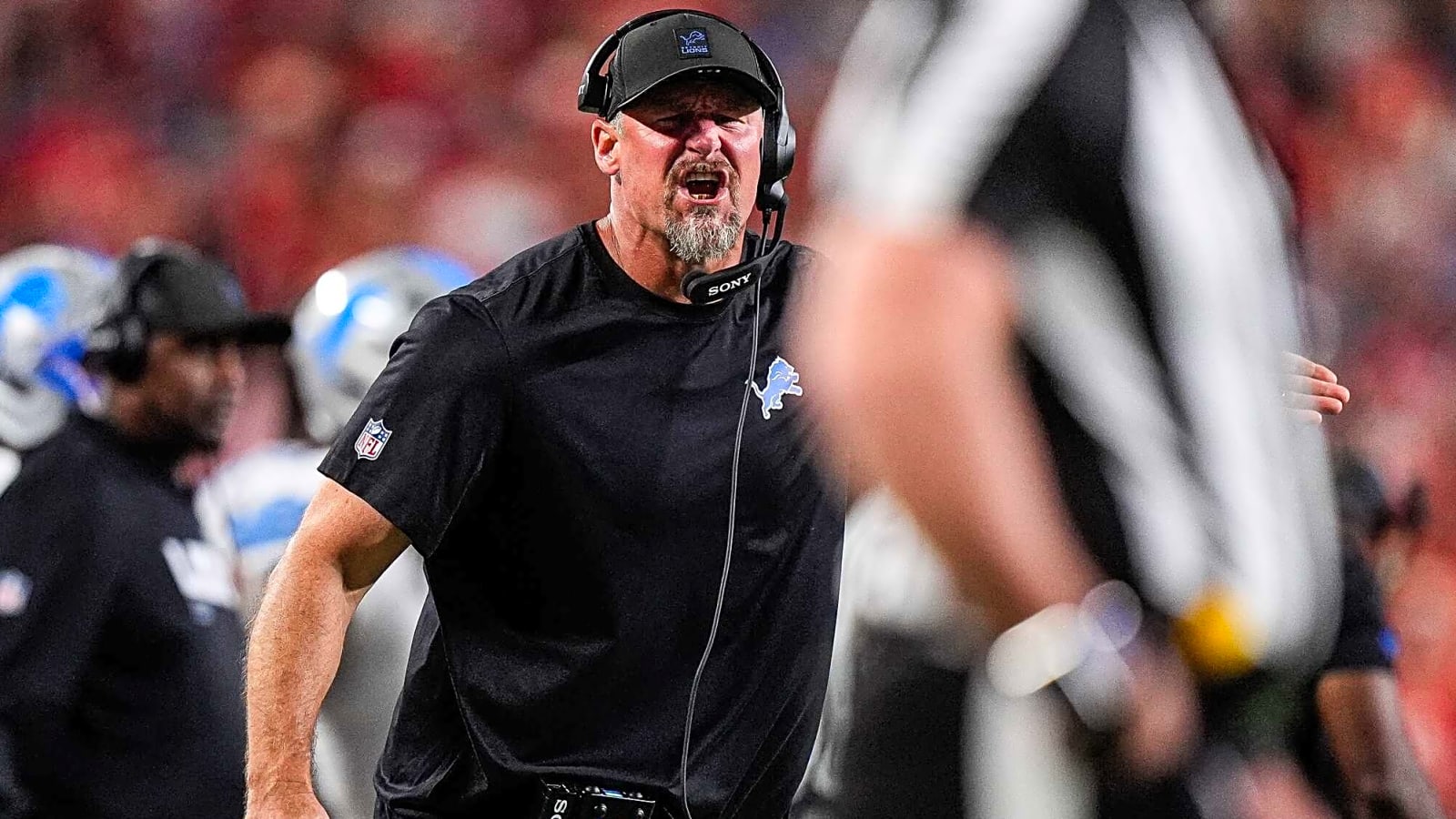
A cloud of controversy continues to linger over the Detroit Lions’ Week 6 game against the Kansas City Chiefs, not because of a penalty, but because of how it was allegedly called. A creative trick play that resulted in a Lions touchdown was nullified by a late flag, and head coach Dan Campbell’s subsequent comments ignited a debate about officiating protocol. Now, the NFL has officially pushed back, with executive vice president Troy Vincent publicly refuting Campbell’s version of events.
The Play That Sparked the Fire
The incident occurred on a cleverly designed trick play. The Lions sent quarterback Jared Goff in motion, making him an eligible receiver on a pass from running back David Montgomery. The play worked to perfection, with Goff catching the ball for what was initially ruled a touchdown. However, after a significant delay and a conference among the officials, a flag was thrown for an illegal shift, wiping the touchdown off the board.
The penalty itself was explainable. The officials ultimately determined that Goff did not come to a complete stop for one second before the snap, a requirement for players in motion. The controversy, however, stems from where the instruction to throw that late flag originated.
Campbell’s Claim vs. the NFL’s Official Stance
In his post-game press conference, a clearly frustrated Dan Campbell made a statement that sent shockwaves through the league. He claimed an on-field official told him the call didn’t come from the crew on the field. “I know it came from New York,” Campbell stated, referring to the “Art McNally GameDay Central,” the NFL’s officiating hub. He doubled down on this claim later in the week on a radio show, insisting he was given that information directly by an official during the game.
This is a serious accusation. While the GameDay Central hub in New York is empowered to assist with certain objective rulings like spotting the ball or penalty enforcement, it is strictly forbidden from intervening on subjective judgment calls like an illegal shift. That penalty must be called by the officials on the field who witnessed it.
In response, NFL executive vice president of football operations, Troy Vincent, has firmly denied Campbell’s account. Speaking to ProFootballTalk, Vincent insisted that the league office had no involvement in the call.
“It was not, and I’m not sure who coach Campbell was referring to, but we did not (intervene),” Vincent said. “We did not assist in that. We didn’t have to.”
Vincent, who is part of the GameDay Central crew on game days, explained that the delay in the flag was due to the on-field officials conferring with one another. He compared it to the process for ruling on intentional grounding, where multiple officials must communicate to confirm different elements of the rule. “You heard the officials talking immediately as the play was going on—prior to even the touchdown,” Vincent explained. “They’re communicating… But we didn’t have to get involved in this particular play.”
Untangling the Conflicting Stories
The NFL’s official explanation aligns with what the game’s lead official, Craig Wrolstad, stated immediately after the game. Wrolstad explained the play’s complexity, noting that Goff’s motion took him from one official’s area of responsibility to another’s. The on-field crew needed time to communicate and confirm whether Goff had stopped at the beginning and end of his motion, leading to the “confusion in our discussion” and the late flag.
This leaves fans with three possibilities to consider:
- The NFL is protecting its process. It’s possible that New York did intervene, breaking protocol, and the league is now publicly closing ranks to cover up the error.
- Dan Campbell was misinformed or is lying. An on-field official might have been mistaken or simply tried to pass the buck to New York to appease an angry coach. It’s also possible, though unlikely, that Campbell fabricated the story.
- There was a simple miscommunication. The most charitable interpretation is that in the heat of the moment, an official’s explanation was misunderstood by Campbell, leading to the coach’s firm but incorrect belief.
Implications for Officiating Transparency
Regardless of who is telling the truth, the situation highlights a persistent issue for the NFL: a lack of trust in its officiating process. The very existence of the controversy shows that fans and even coaches are skeptical of the league’s procedures.
The introduction of a centralized officiating hub was meant to increase accuracy and consistency, but it has also created a new layer of potential confusion and conspiracy. When a call is delayed, it’s now natural to wonder if an outside influence was involved. The league’s firm denial is necessary to maintain the integrity of the system, but Campbell’s equally firm insistence creates a credibility problem.
Ultimately, the league is sticking to its story, and the penalty on the field stands. But for many fans, the conflicting accounts leave a sour taste. This incident will likely be remembered not for the penalty itself, but for the questions it raised about who is really making the calls on Sundays and whether the process is as transparent as the NFL claims it to be.
More must-reads:
- Baffling non-fumble call in Eagles-Giants will be another dagger for tush push
- Why this potential Cowboys-Dolphins trade makes plenty of sense
- The 'Active 3-passing-TD game leaders' quiz
Breaking News
Trending News
Customize Your Newsletter
 +
+
Get the latest news and rumors, customized to your favorite sports and teams. Emailed daily. Always free!








